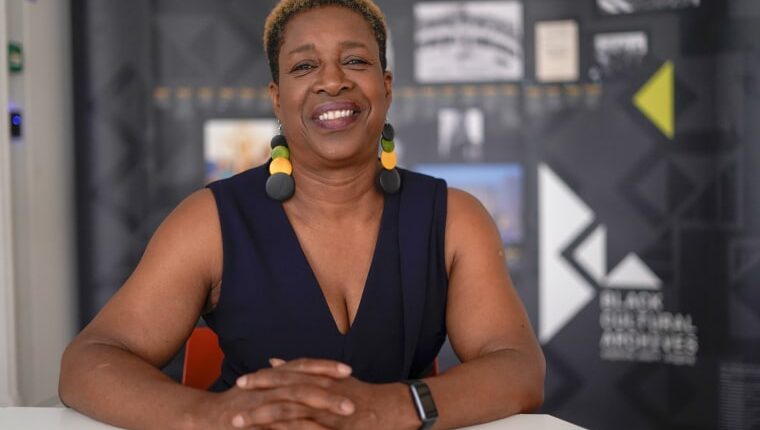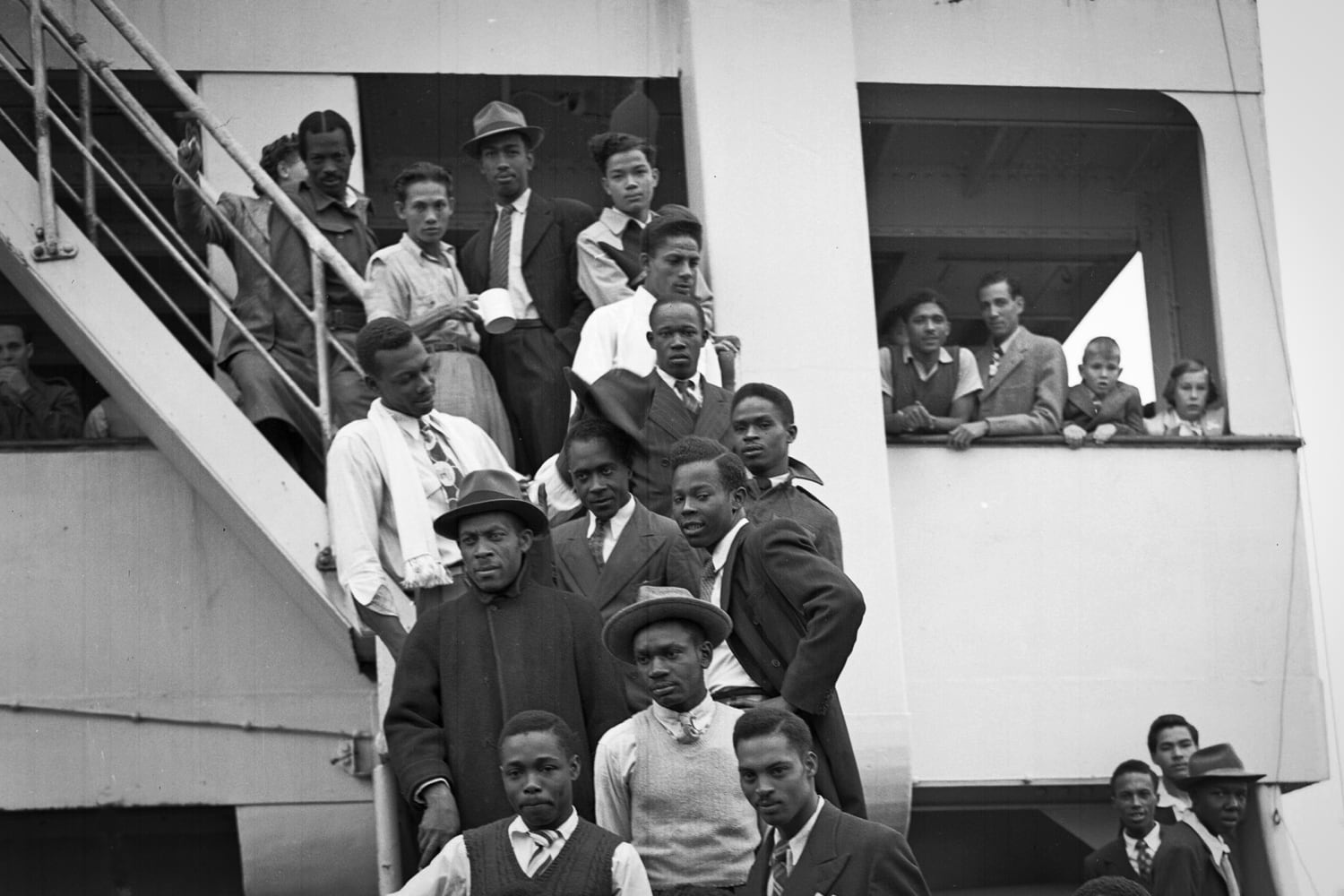As a small child in Jamaica, Evadney Campbell loved it when barrels of gifts arrived at Christmastime from her parents in England. She was thrilled to receive the dolls, the English crinoline dresses with ribbons, the pretty white socks and shiny patent shoes.
It was only years later that Campbell realized the deliveries were bittersweet. For scores of children who grew up in Jamaica and elsewhere in the Caribbean in the 1950s and 60s, those barrels were the only connection they had with their parents, who had traveled thousands of miles away to Britain in search of better work opportunities.
Campbell was not yet a year old when her parents left and she did not reunite with her parents in England until she was 11.
“The idea of a mother and father, it was just an idea. I didn’t know who they were, didn’t know what they looked like,” said Campbell, now 63. “You just knew they were in England, and you were in Jamaica.”

Campbell’s family story forms part of a new exhibition at London’s Black Cultural Archives that opens Thursday to coincide with 75 years since the ship Empire Windrush brought the first Caribbean migrants to a dock in Essex, near London, on June 22, 1948.
The ship has since become a symbol of a mass migration movement that saw many Caribbeans take up jobs as railway and factory workers, nurses and miners in the U.K., at the invitation of the British government to help rebuild the country after World War II. Hundreds of thousands settled in the U.K. and became known as the “Windrush generation.”
Curator Nadine White said that while much has been written about the trailblazing pioneers who departed from the Caribbean to contribute to British life, the stories of their children who were left behind are often overlooked.
Her exhibition focuses on the trauma suffered by what’s estimated to be thousands of “barrel children,” named after the shipping containers that were widely used by the Caribbean diaspora to send remittances and gifts back home.
In many cases, the parents left their children at home in the care of relatives because they initially believed they would merely be working away for a few years and return after earning good money abroad. But most soon began to build a new life in Britain. While many of the youngsters eventually reunited with their parents, others never did.
“We are really talking about the fragmentation of Black families — and I feel like that consequence of serial migration isn’t in the national conversation about Windrush,” White said.
On top of being uprooted from all things familiar and trying to build relationships with parents and siblings they didn’t know, the newly-arrived children also struggled to integrate into a “hostile society that was far more overtly racist than any of them had experienced or envisioned,” White said.
Source: | This article originally belongs to Nbcnews.com










